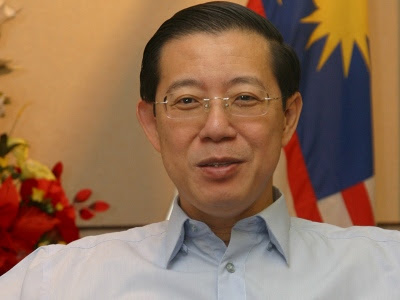Lim Guan Eng’s RM 8 billion Chinese New Year Economy Stimulus Package

1) a 4.6km bypass linking Bandar Air Hitam to Lim Chong Eu Expressway
2) 6.5km Sea Tunnel connecting Gurney Drive to Bagan Ajam
3) 12km Tanjung Bungah to Telok Bahang paired road
4) 4.2km road from Gurney Drive to Lim Chong Eu Expressway bypassing the city center
Those projects are in the final stage of so-called open tenders which no one seem to notice or realize.
The very next day, the Lim Guan Eng administration unveiled another RM140 million road expansion plan for 1.5km Jalan Bukit Minyak-Alma. This is the most expansive road expansion project in Malaysia since independence.
The announced spectacle reveals one of the most important developments in Penang politics — the widening gulf between politicians’ policy decisions and the preferences of the people toward specific issues. This announcement can be added to the long list of policies that failed to mirror public opinion. The arrogance of the CM shows a continuing trend of declining responsiveness to the public’s policy preferences.
The 6.5km Sea Tunnel connecting Gurney Drive to Bagan Ajam in particular is deemed a white elephant project by sustainable transit advocates. With the second bridge, designed to cater for traffic needs until 2022, near completion, the undersea tunnel is rendered unnecessary in near future. Why do we need to spend billions of ringgit for a dead-end to Gurney Plaza? The decision to build the undersea tunnel was rammed through without public debate especially when there is a genuine concern on how it will affect the Penang port as a transhipment port. A transhipment port is one where the shipment of goods or containers are transloaded to a bigger vessel for the next destination. Thus, it required a deeper channel up to 18.5m to cater for larger vessels.
The council is made up of “state and city council members, civil servants, university professors, professionals, stakeholders, and members of the public with no spine or sense of dignity. They have failed to deliver their promises of moving the people, not cars. They have allowed Lim Guan Eng to usurp their decision making authority and trivialize their expertise. They have allowed Lim Guan Eng to persist in pressing onward all the road construction solution to the bewilderment of sustainable transit advocates.
Another major decision was how the construction was to be financed. According to Lim Guan Eng, no monetary payment or funding should be given by the state for the construction of the projects as cost incurred would either be recovered through concession, land swap, toll or any other form.
Costs for the sea link tunnel would be recouped from toll charges expected to be same as the Penang Bridge and second bridge while construction of the roads would involve land swapping deals.
Tunnelling is a major engineering challenge. A serious risk with underwater tunnels is major water inflow due to the water pressure from the sea above under weak ground conditions. The Channel Tunnel also had the challenge of time — being privately funded, early financial return was paramount. We have witnessed the scandalous concession given to highway operators in the past which literally sold out the people and the government. We do not expect the present leadership to travel this treacherous road again. We do not expect the ill-thought-out schemes to be driven by corruption and serve as new conduits for filching government lands. We want the state government to be transparent and come out clean on the concession and land swapping deals.
Lim Guan Eng’s unwavering decision to sail against public opinion and then to openly defend his undemocratic actions was just one aspect of his one man’s executive decision process that was atypical.
Lim Guan Eng is a politician that will not hesitate to change public opinion not by directly persuading the public on the merits of his policy choices but by “priming” and distracting public opinion with the opinion that the urgency to defeat BN for change should take precedence over policy decisions that affect the people.
Do we need a state government in which the state legislative assembly and public opinion was effectively ignored, so that the CM can decide everything to suit his own ambitions?
This is the betrayal of the highest order. It is unacceptable and must be stopped at all costs. This is a lousy attempt to hold our desire for change for ransom. A leader who ignores the voice for change poses a more insidious threat to democracy than BN’s machinations. Time has proven that Lim Guan Eng sought to circumvent our desire for change and defied the public at almost every turn.
Only the heat of an imminent election and the elevated attention that average voters devote to it motivate politicians to respond to public opinion and absorb the costs of compromising their policy goals. Lim Guan Eng wants to use the coming election as a referendum for his policy choice. If Guan Eng wins reelection, it will be seen by many, especially those who have made their careers in politics, as a vindication of his ambitious property and construction-centric policy agenda.

